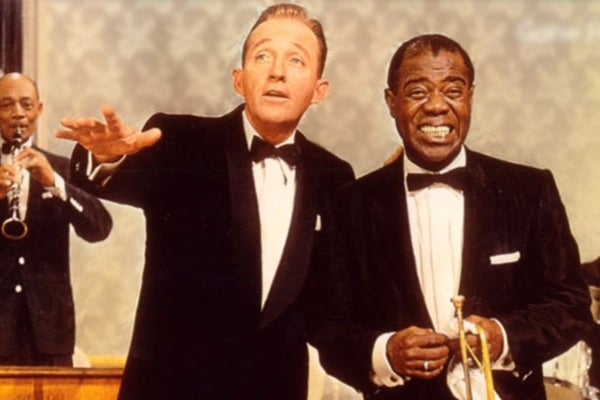[ad_1]
When Jazz legend and New Orleans native Louis Armstrong died in his sleep on July 6, 1971 in his Queens, NYC home, late CBS broadcaster Walter Cronkite said, “We aren’t saying goodbye to Louis tonight, because a man’s music does not die with him, certainly not this man’s.”
Fred Robbins, a disk jockey and long-time friend who delivered the principal eulogy at Armstrong’s funeral said, “Move over, Gabriel, here comes Satchmo.”
Sacha Jenkins’ new documentary “Black & Blues,” which is streaming on Apple TV Plus AAPL, looks at the life and art of Louis “Satchmo” Armstrong who is widely credited with helping to found jazz with his trumpet sound, unique singing voice and for popularizing scat singing.
“Armstrong was enormously influential and it’s difficult to find another musician who has left such an enduring mark on the industry and the world in recent memory,” said Doc NYC reviewer Abe Friedtanzer.
With the help of Armstrong’s private audio tapes and never-before-seen footage, Jenkins’ film reveals a complicated man from a deeply impoverished childhood in New Orleans who quietly pushed back against racism and intolerance.
Cannabis Consumer Like His Friend Bing Crosby
Armstrong, a regular cannabis consumer, is regarded as among the first proclaimed medical marijuana users; he called it a healthy alternative to alcohol and said it was essential in helping him sleep and concentrate. An early cannabis legalization advocate who first went to jail for weed possession in 1931, Armstrong’s activism also shone a light on racism, beginning in the 1950s. This earned him unwanted attention from the FBI, which opened a secret file on him.
When Armstrong learned that his friend Bing Crosby, also an outspoken anti-booze cannabis proponent, had gotten a waiver to grow weed, he wanted the same opportunity. In 1954, Armstrong wrote a letter to President Dwight Eisenhower asking him to legalize marijuana. No word on whether Ike responded.
Interview Heard Around The World
Eisenhower did, however, react to Armstrong’s choice words in a 1957 interview heard ’round the world. Armstrong blasted the President for doing nothing about the violent action of Arkansas Gov. Orval Faubus who called out the National Guard to prevent nine Black teens from attending a local all-white high school in Little Rock. One week after the interview was published, Eisenhower sent 1,200 paratroopers from the 101st Airborne into Little Rock. The next day, soldiers escorted the nine students into Little Rock’s Central High School. The event was a milestone in US civil rights history. Armstrong publicly thanked President Eisenhower: “God bless you.”
Check out the trailer:
[ad_2]
Image and article originally from www.benzinga.com. Read the original article here.

